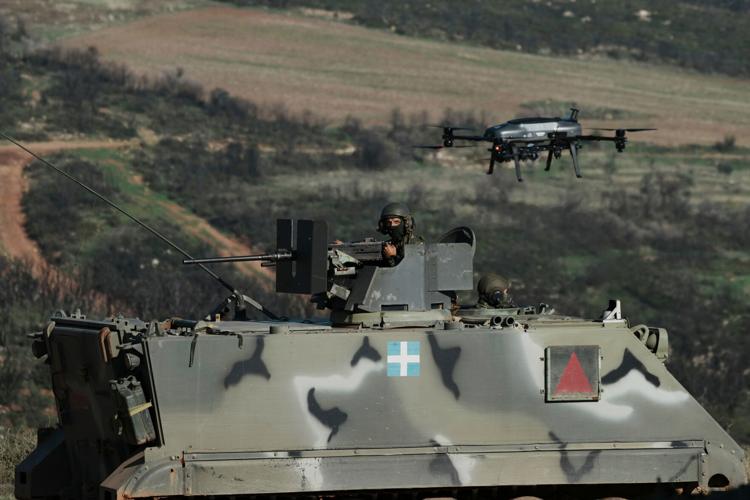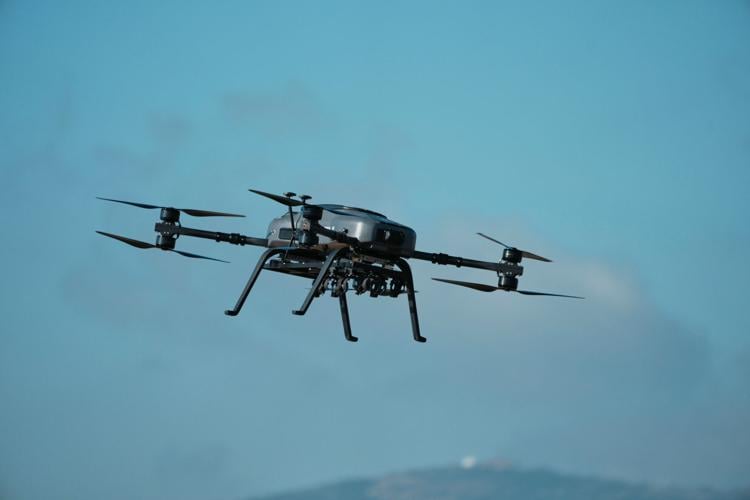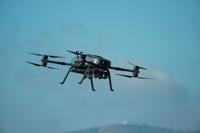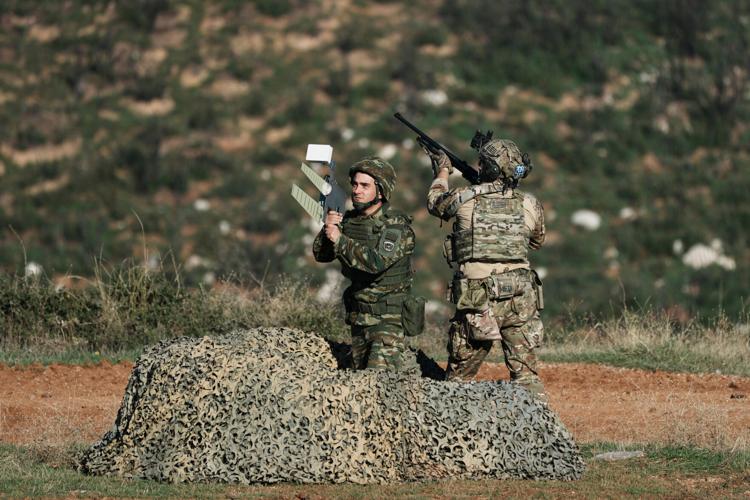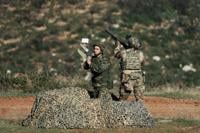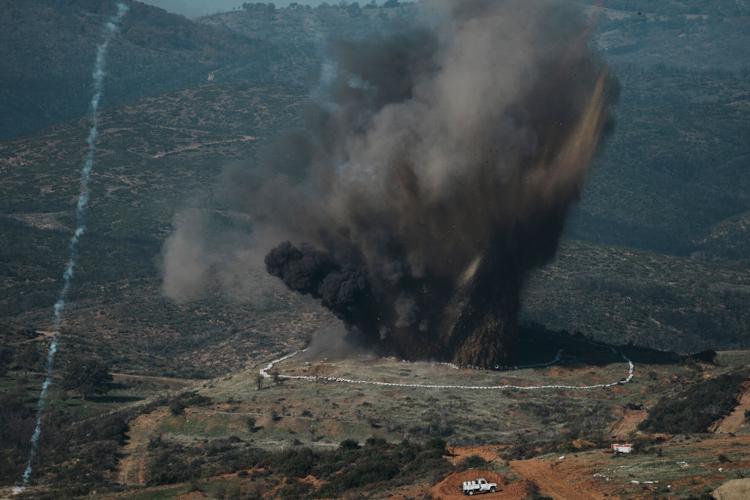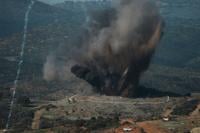ALEXANDROUPOLIS, Greece (AP) — Under a low November sun, a hillside in rural Greece offered a glimpse of war in the near-future.
Helicopters skimmed tree lines and infantry units scrambled across a firing range through bursts of smoke and thunderous explosions. Above them, a constellation of drones — quadcopters, fixed-wings, loitering munitions and experimental prototypes — helped coordinate the intense mock battle.
Greece on Friday tested a broad range of domestically developed drones and counter-drone tools inside a full tactical exercise for the first time, part of an urgent NATO-wide push for faster battlefield innovation.
Military officers from the United States, France, Bulgaria, Armenia and Turkey watched from viewing stands as Greece, long reliant on imports, joined the global race to build and field-test its own lethal technology.
A battlefield crowded with machines
Aerial and land drones handled an astonishing range of tasks during the drill.
Small quadcopters dropped tire spikes and mines to slow enemy vehicles. Others laid smoke screens or delivered medical kits and ammunition to forward positions.
Some carried portable loudspeakers that broadcast a recorded message in English to demoralize the enemy: “This war is futile. You only have one choice: Go back home.”
A two-wheeled experimental “tunnel crawler” equipped with rotors demonstrated an ability to spring into the air from confined spaces. It can carry explosives, emergency oxygen or radiation detectors.
A surge of innovation – and urgency
Greece’s push mirrors a broader shift across mid-sized NATO economies since Russia’s full-scale invasion of Ukraine: Estonia, Denmark and others have invested in indigenous drone and counter-drone technology, seeing autonomy and rapid production as vital to deterrence.
For Athens, locked in a decades-old dispute with Turkey over sea boundaries, drones are part of a 25 billion euro overhaul of its armed forces after years of austerity. The alliance’s urgency is also shaped by uncertainty over the United States’ long-term security commitments to Europe. NATO leaders are urging Europe’s defense sector — historically fragmented and dependent on U.S. systems — to adopt a startup mentality.
“We need capabilities, equipment, real firepower and the most advanced technology,” NATO secretary-general Mark Rutte warned during a visit to Romania last week. “Bring your ideas, test your ingenuity, and use NATO as your test bed.”
Greek companies sense an opening.
For small firms, a moment to shine
Dimitris Stefanakis, head of Ucandrone, a Greek reconnaissance UAV maker, said Ukraine’s rapid battlefield adaptation has reshaped the industry.
“Before, we thought drones followed the 15‑year cycle of defense platforms,” he noted. “Now they’re living systems that must be constantly upgraded. Big firms struggle with that. For small, agile ones like us, it’s our time to shine.”
Ucandrone, which began with farmland‑measurement tools, repurposed its tech to detect camouflage and now exports fully electric, fixed‑wing drones with integrated battlefield‑awareness systems.
Greek developers say rising military funding will also accelerate civilian applications.
Vaios Lappas, a professor of aerospace science at the University of Athens, helped modify a robot dog to act as an autonomous medic for the wounded. Military exercises, he said, provide “real, applicable skills” and allow advanced algorithms to be tested. That expertise feeds into the robot medic’s main civilian role: disaster response in earthquakes and wildfires.
Changing how the military works
Western alliance officials say Europe needs to abandon decade‑long procurement cycles for rapid‑development ecosystems but analysts see the shift worldwide.
Swasti Rao, a professor at India's Jindal School for International Affairs, notes recent conflicts show rapid innovation is decisive. “Warfare is transforming,” said Rao, who is also a consultant at India's Ministry of Defense. “Drone systems, satellite links, and network‑centric operations now define battlefield advantage.”
Rao argued that medium-sized economies lacking giant industrial bases could benefit by offering flexibility, but cautioned that faster procurement cycles also required faster decision making by governments. Nikos Dendias, the Greek defense minister who oversaw Friday's exercise, said adopting the new military outlook demands a profound adjustment throughout the ranks. “Look at Ukraine: Warfare has shifted from large mechanized divisions to small, mobile units with soldiers who often use information and technology rather than traditional weapons,” Dendias told a security conference in Athens this week. “The change in mindset needed is enormous."

